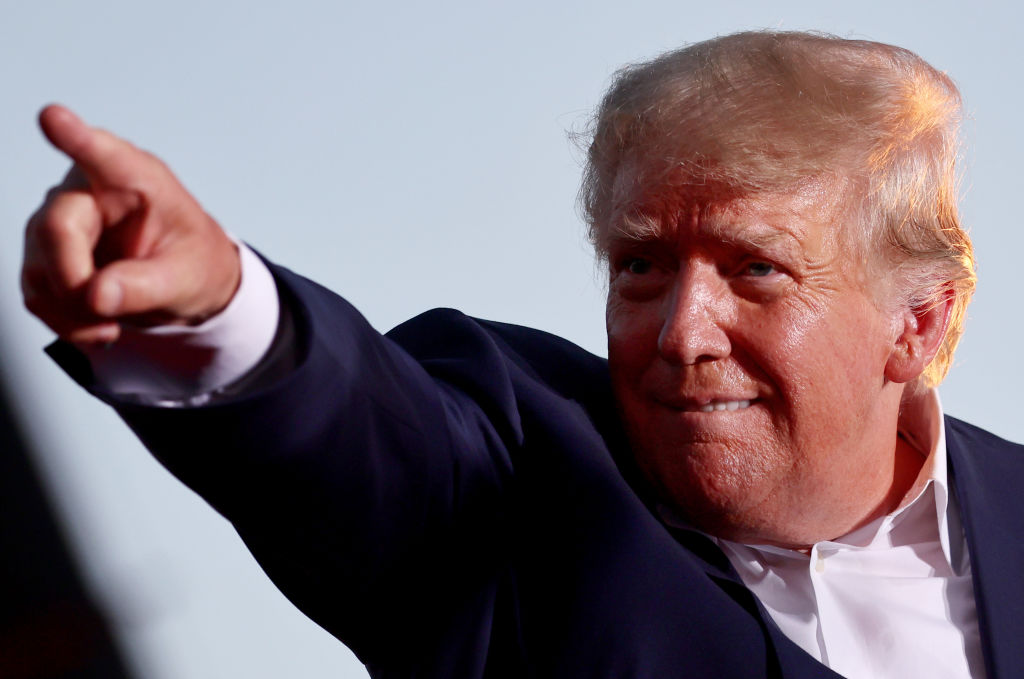Suppose a congressional body sets out to investigate an alleged criminal conspiracy but avoids speaking with the one individual accused of being at the center of the dastardly plot. In that case, it is entirely fair to question both the motive and integrity of the investigators. Just a couple of minutes before the January 6 Committee wrapped up what could be its final hearing – most certainly the last before the 2022 elections – members voted unanimously to subpoena former President Donald Trump to testify. What did they hope to achieve? A grand gesture, maybe? It’s not easy to tell. Perhaps the committee doesn’t want to directly confront the 45th president at all, which would explain why it waited until just 25 days before the midterm elections to make its move. Whatever the reasoning, this Democrat star chamber has put Mr. Trump in the driver’s seat – a blunder for which there is no rational explanation.
 Assuming Republicans take control of the House of Representatives at the beginning of next year – and that is the most likely scenario – the January 6 Committee will be no more. Just beyond the midterms looms the holiday season. The window of opportunity for Trump’s political enemies to make anything of their partisan probe is narrow indeed and closing rapidly. Their final act, apart from producing the inevitable 500,000-page report (that figure is not confirmed but rest assured, it will be a substantial tome), was to give Trump the final word. Whether he testifies is largely his decision. He could fight the subpoena long enough to make it moot or dive right into what could turn out to be a “yuuuge” – as Trump would say – publicity coup.
Assuming Republicans take control of the House of Representatives at the beginning of next year – and that is the most likely scenario – the January 6 Committee will be no more. Just beyond the midterms looms the holiday season. The window of opportunity for Trump’s political enemies to make anything of their partisan probe is narrow indeed and closing rapidly. Their final act, apart from producing the inevitable 500,000-page report (that figure is not confirmed but rest assured, it will be a substantial tome), was to give Trump the final word. Whether he testifies is largely his decision. He could fight the subpoena long enough to make it moot or dive right into what could turn out to be a “yuuuge” – as Trump would say – publicity coup.
Will Trump Meet the January 6 Committee Challenge?
 An individual close to the former president has reportedly told Fox News Digital that Trump “loves the idea of testifying” before the committee. That claim jibes with The Donald’s brash showmanship. According to the source, Trump would use the opportunity to “talk about how corrupt the election was, how corrupt the committee was, and how Nancy Pelosi did not call up the National Guard that Trump strongly recommended for her to do three days earlier on January 3, 2021.”
An individual close to the former president has reportedly told Fox News Digital that Trump “loves the idea of testifying” before the committee. That claim jibes with The Donald’s brash showmanship. According to the source, Trump would use the opportunity to “talk about how corrupt the election was, how corrupt the committee was, and how Nancy Pelosi did not call up the National Guard that Trump strongly recommended for her to do three days earlier on January 3, 2021.”
Trump himself wasted no time in responding to the January 6 Committee vote. On the TruthSocial platform, he wrote:
“Why didn’t the Unselect Committee ask me to testify months ago? Why did they wait until the very end, the final moments of their last meeting? Because the Committee is a total ‘BUST’ that has only served to further divide our Country which, by the way, is doing very badly – A laughing stock all over the World?”
He also accused Democrats of failing to examine the “massive voter fraud which took place during the 2020 Presidential Election,” that, he said, was “[t]he reason for what took place on January 6th.”

(Photo by Mario Tama/Getty Images)
This would not be the first time a former commander-in-chief has been subpoenaed by a congressional committee. Presidents John Tyler and John Quincy Adams provided sworn depositions to congressional committees after they left office. In 1953, the House Committee on Un-American Activities (HUAC) subpoenaed former President Harry Truman regarding his appointment of someone who had come under suspicion of having communist ties. Truman refused to honor the subpoena on separation of powers grounds, and Congress did not seek to enforce its subpoena by a finding of contempt.
Liberty Nation’s Legal Affairs Editor Scott D. Cosenza speculated on Trump’s possible responses:
“Of course, [Trump] could testify, and given the likely ratings and views of such an appearance, it’s not out of the question knowing Mr. Trump’s appetite for publicity. If he doesn’t want to testify, he could very well tie up the issue with legal challenges for long enough until the committee expires. Trump would likely make the same arguments Truman did, and he might find a sympathetic ear or six at the Supreme Court for such a position, which is where any challenge would likely terminate.”
Since the Democrats on the January 6 Committee, along with their two specially selected token Republicans, have made no serious effort to portray their investigation as fair and apolitical, they could surely have maintained at least a veneer of dignity in the eyes of those who supported their efforts. They could have announced that their case against Trump was so strong, his testimony was neither required nor relevant. Instead, they have surrendered the stage to the man who loves to be on it – and who used it to achieve success, first in television and then in politics. It is a strange and sorry end to one of the most spiteful and authoritarian episodes in the history of the US Congress.



